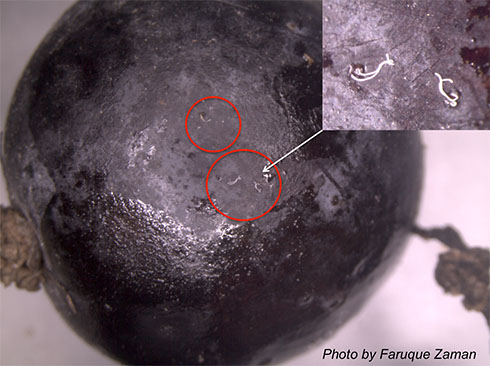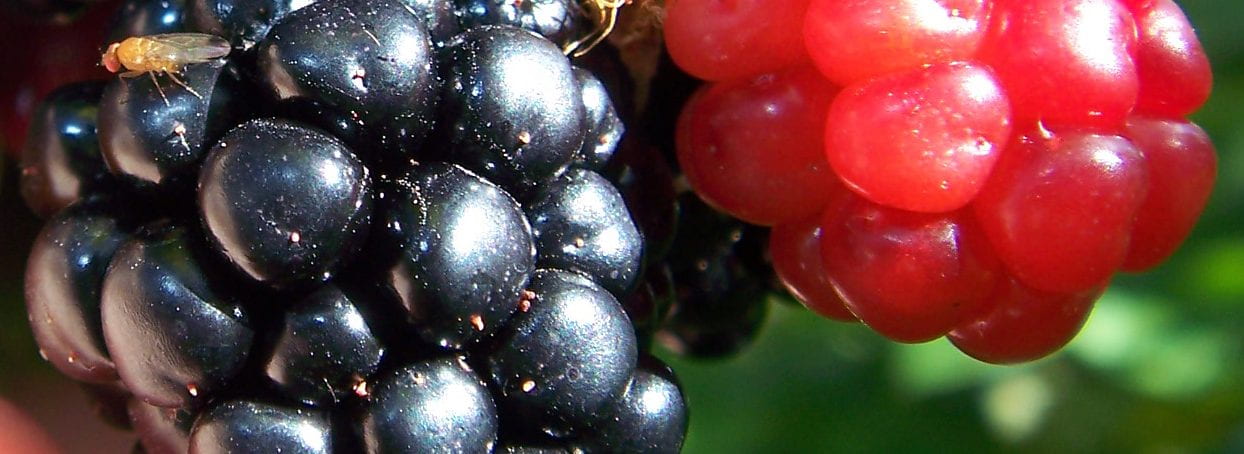Faruque Zaman and Dan Gilrein, entomologists with Suffolk County Cornell Cooperative Extension at the Long Island Horticultural Research and Extension Center, just finished checking fruit collected July 18 from commercial plantings. Heavy oviposition was found in blackberries where over 50% of the fruit had 1 to 10 SWD eggs. No larvae were found in these samples, indicating the eggs were lain recently. Raspberries and blueberries next to the blackberry field had <1.0% fruit with SWD egg laying. Eggs are inserted into the fruit leaving only the tiny filaments (the eggs' breathing tubes) visible on the outside of fruit. Blackberries are known to be highly susceptible to SWD and these findings underline this.



Very nice picture showing the respiration tube!
Scary infestation level.
Will oil suffocate the eggs with minimal damage to plant and fruit?
It is not known whether oil will suffocate the eggs by blocking the breathing tubes. Experimental trials with oils would need to be done to determine this (trials may be underway in the Eastern US that I am not aware of). Oil applied in late season sprays to manage powdery mildew on grape can result in a reduction in soluble solids (brix) levels in fruit at harvest compared to vines not treated with oil. Some plants are sensitive to oil and phytotoxicity could result when applied during the growing season. Oil can combine with other materials (notably captan or sulfur) and cause phytotoxicity typically expressed as "burned" areas on leaves, scorch or leaf spotting.